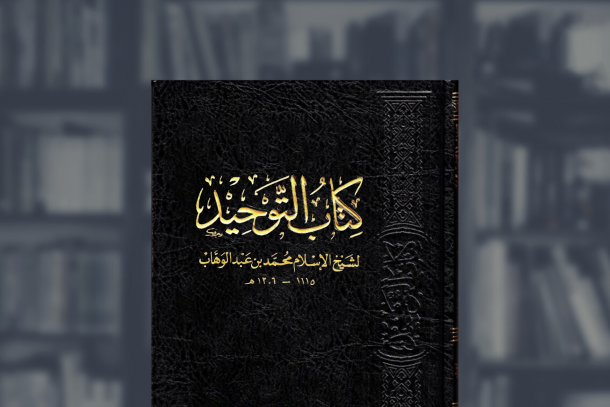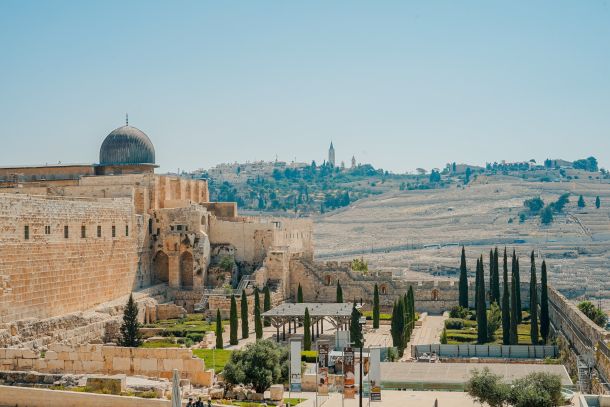Day 1 Points:
- The Shaykh mentioned that a person of Sunnah visits the people of Sunnah, and so he is visiting his brothers in India.
- He said that no matter what worldly differences there are between us, we unite upon the correct creed. Thus, we have people from all over the country coming together, not due to partisanship or deviation, but due to being upon the Sunnah.
- Ta’asub (utmost loyalty) is only for the Prophet, Sallalahu alaihi wa sallam. If it was not for Abu Bakr or Umar, then how can it be for anyone else.
- The Shaykh described the great blessing of Tawheed, about which millions of people are unaware of. And how we have been chosen from amongst the Muslims as people of Tawheed. And Allah has saved us from the many sects such as the Shi’a, Ikhwaan, etc.
- Another blessing that Allah has bestowed on us is that of seeking knowledge. And it is indeed from the greatest of blessings that Allah made it easy for us to sit in the gatherings of knowledge.
- Well-being is also from the greatest of blessings as it comes in the Hadith of ‘Abbas, Radiyallahu anhu, where the Prophet, Sallalahu alaihi wa sallam said to him to ask for well-being in this world and the hereafter. And from this well-being comes good health to worship Allah.
- Recognition of these blessings is important, along with others than one has been given, since many a time a person looks at others and forgets what one has, such as the size of housing etc.
- Shaykh pointed out the importance of seeking knowledge as the scholars have stated that you cannot worship correctly without knowledge. Indeed, the ones who are most humble are those who have knowledge about Allah.
- The people of knowledge eradicate ignorance, and such efforts to remove ignorance cannot be undertaken by ignorant people.
- We are more in need of knowledge than food and drink, and knowledge brings with it many virtues. There are numerous proofs in the Quran and Sunnah regarding seeking knowledge and its benefits.
- There is no set age for seeking knowledge. There were Sahabah who sought it late, and there were scholars who started taking knowledge very late. So, a person who is 50 or 60 years old should not hold back and seek knowledge as well.
- A person seeks knowledge of the Quran and the Sunnah and starts with smaller matters rather than bigger ones. And it is to be taken from the scholars as stated by Imam Ahmad.
- The Shaykh then advised to abstain from partisanship and division. And this is taken from the Quran and the Sunnah, and he mentioned the Hadith of the 73 sects. So, it is obligatory to stay away from these groups and deviant ideologies. Everyone who will be involved in them brings harm to themselves and their family.
- The Shaykh further advised with the correct Islamic character and having good manners. Since how it can be that a person claims Salafiyyah, while his own family complains about deficiencies in his manners. A person of Sunnah does not lie, is nor miserly, does not acknowledge falsehood, etc. Rather he is a beacon of happiness who people love to deal with.
- People are looking at you as a person of Sunnah, and thus you are representing Ahlus Sunnah by carrying the Sunnah at every place. Thus, good character is important to maintain with family, and people around you, even disbelievers.
- The Shaykh encouraged physical meetings with brothers and supporting one another.
- He gave some tips regarding a schedule for a student as follows:
- Trying to spend half an hour or one hour after Fajr for Quraan
- After Asr or Isha, revising that which was memorized, and praying Witr with it.
- Also attempting a weekly revision on the weekend
- And staying away from smartphones during all this
- Finish each day with reading some book of knowledge
- He had short, dedicated sessions with brothers from different parts and below are some key points for their respective areas:
- Vijayawada: only take the legal route to get back the masjid if there is capability and ease to do so, otherwise not to involve in disputes with Jami’at Ahlul Hadith, and focus on our Da’wah and clarity
- Mangalore: focus on teaching easy books for now
- Bombay: internal conflict makes us weak, and desire for leadership leads to destruction. So, have patience and a forgiving nature, and not be hasty and continue the Da’wah
- Delhi: travel to meet people of Sunnah and be continuous in memorization of Quran and seeking knowledge.
Day 2 Points:
Brief benefits from Hadith Jibreel
- It is from the greatest of hadith in that Jibreel himself came with it in the form of a man. Further, it illustrates the whole of religion, and it includes the manners of seeking knowledge. Thus, some scholars such as Ibn Taymiyyah chose to write a full book just on this hadith.
- The narrator of the hadith is Umar, May Allah be Pleased with him, the second Khalifa. And within the hadith we see the eagerness of him and the Sahabah to sit in gatherings of knowledge.
- The companions used to live close to one another. So, the appearance of a man whom no one had seen or who had no signs of travel was very unusual.
- The way the stranger sat in front of the Messenger, Sallalahu alaihi wa sallam, demonstrates the humbleness and humility a student of knowledge should carry. And it is mentioned that he placed ‘his’ hands on ‘his’ thighs. The preferred opinion is that he placed his hands on his own thighs, and not the of thighs of the Messenger, Sallalahu alaihi wa sallam.
- A student is well mannered in the gatherings of knowledge. It is said that some of the Salaf would not look at their teachers in the face out of respect. And there is a statement from Imaam Shaafi’ that knowledge increases a person in humbleness (Tawaadu’). And regarding manners, he also said: I didn’t drink water in the gatherings of Maalik.
- The stranger also addressed the Messenger, Sallalahu alaihi wa sallam, as ‘O Muhammad’, and this was unusual as well since only Bedouin Arabs would call him with the first name like that.
- The first question asked in the Hadith was about Islaam, and the reply starts with that which is most fundamental and that is the Shahadah, then goes onto the next most important affair (prayer) and so on and so forth.
- The questioner asks about something and then tells the answerer that the answer is correct. The scholars take from this that it is permissible to ask what you are already aware of with the intention to educate others who don’t know. Likewise, if you are in a gathering and some evil such as Riba’ (interest) is widespread, one may ask a question regarding it to educate others who are present.
- The next question was about Eemaan (Belief), and the first pillar of this is to believe in Allah, Subhanahu wa Ta’ala; to believe in His Presence, that He has the Most Beautiful Names and Lofty Attributes and that He Alone deserves Worship.
- And from the pillars of Eemaan is to believe in the Angels, that they are from the creation of Allah, and that their numbers are unknown. And each of them has assigned duties such as coming with revelation, bringing rain, carrying the throne, taking the soul, etc. The greatest of the angels are Jibreel, Mika’il and Israfil and the best of these is Jibreel, alaihis salaam.
- Also from the pillars of Eemaan are belief in the Books and belief in the Messengers. And all of these require a general belief in them, as well as a detailed belief in what we have been informed about, their names, events, etc. Thus, we believe in all the Prophets that were sent in the past and finally the Prophet Muhammad, Sallalahu alaihi wa sallam, who was the last and seal of the Prophets. And that after his coming, Sallalahu alaihi wa sallam, it is not allowed to follow any legislation from the past.
- The Last Day refers to the Day of Judgement, but it starts for each person with his death in this life. Important aspects of the Last Day include believing in the blowing of the Trumpet, the Resurrection, the occurrences of the Standing, the Scale, and the Intercession.
- The Belief in Paradise and Hell is to believe that they are created and already present and will be ever-present.
- Belief in Qadr (Divine Decree) entails belief in its four aspects or levels: Al ‘Ilm (Allah’s Knowledge), Al Kitaabah (The Writing), Al Mashee’ah (The Will of Allah), and Al Khalq (The Creation).
- The questioner also asks about Ihsan. And we understand from the answer that every Mu’min (Believer) is a Muslim, but not every Muslim is a Mu’min or a Mohsin. Also, in it is proof that we cannot see Allah in this life, because Ihsan is explained as: to worship Allah ‘as if you see Him’.
- The question regarding the Hour, and that both Jibreel and the Prophet, Sallalahu alaihi wa sallam, did not know about it proves that it is from the affairs of the unseen.
- First of the signs of the Hour is the sending of the Prophet Muhammad, Sallalahu alaihi wa sallam. We understand from this that not all signs are categorized as blameworthy. And some signs, such as the poor shepherds competing in building tall buildings, are only as information.
- The hadith ends with the Prophet, Sallalahu alaihi wa sallam, stating that Jibreel came to teach them their deen. Hence the scholars say that teaching of the religion revolves around this hadith.
Q & A Session Benefits
- On seeking knowledge: Focus on memorization of Quran and Sunnah. And pay attention to basic sciences such as Belief and Arabic language, since a student needs these in every condition. Start gradually and then increase in levels, going from smaller aspects to greater ones. And bear in mind that seeking knowledge is a lifetime project and does not have a fixed timeline.
- Regarding marital affairs: Dealing with the family of one’s wife is important as many problems can arise from it otherwise. The husband should deal with them as if it’s his own family; being good to them and helping her to be good to them. And if there are any issues, he explains to his wife to deal with it as best as possible, and it should not lead in any case to cutting off relations between him and them.
- Obedience to parents: Parents have a very high right, and Allah has attached it to Tawheed. Many narrations alluding to this such as the Hadith where dua was made that a person’s nose be rubbed in dust, if he finds his parents in old age and he still does not attain Paradise by serving them. And this being righteous to them applies even if they are not Muslims.
- Regarding keeping gap between pregnancies: Shaykh replied (quoting one of the scholars) that it was allowed to have 4 years of gap between children, 2 for breastfeeding and 2 for upbringing.
- Question also on seeking knowledge: “In our region we don’t have any people of knowledge who teach in our language of Malyalam. So, people who only know our local language face issues with learning the religion. Our area is surrounded by people who claim Salafiyyah, but they are either extreme in manhaj or are from those who are Mumayyi. They conduct lessons in their masaajid, and people have started attending these. We recently started seeing some brothers who were upon the clear manhaj saying that we can’t stop people who attend their lessons because we don’t have any other alternative options. Also, some brothers even started attending their lessons. Is this the right approach? And how should we deal with these brothers?” The Shaykh responded by saying that ‘naseehah’ (advice) should be given to them just like we would advise our brother who would be heading towards fire. And the Shaykh advised us to build a masjid. And he said that it is from the usool (principles) of Ahlus Sunnah that knowledge is only taken from those who are known.
- Shaykh was asked regarding attending Jumu’ah (Friday) prayer, when there was only a choice between an ikhwani masjid and a mumayyi masjid, and which one of them should be chosen to go to? And what if someone considers going to the ikhwani masjid more harmful, as well as the opposite, ie. if another considers going to Mumayyi masjid more harmful? The Shaykh replied saying we look to avoiding that which causes harm and go pray in that which is less harmful.
Latest Articles

Shaykh Muhammad Ghalib – December 2023 Visit
Day 1 Points:
The Shaykh mentioned that a person of Sunnah visits the people of Sunnah, and so…

Kitaab At Tawheed Chapters
Intro: فَضْلُ اَلتَّوْحِيدِ (At- Tawheed (The Oneness of Allah)).
Chapter 1: بَابُ فَضْلِ التَّ…

अल्लाह की मदद कब आएगी?
हमने अल्लाह के पैग़म्बर (सल्लल्लाहु अ़लैहि व सल्लम) से हो रहे अत्याचार की शिकायत की जब वह काबा के स…